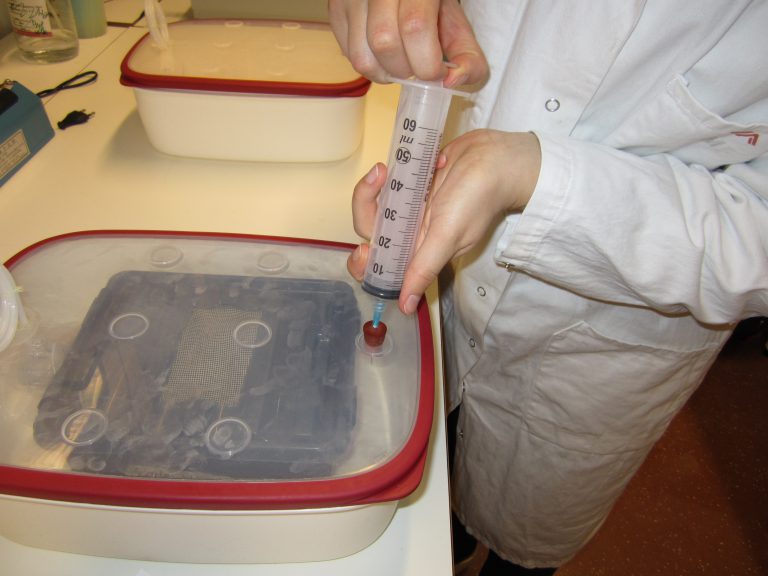
A new paper evaluating the greenhouse gas (GHG) emissions from small-scale fly larvae composting is published. The full paper is available here: https://doi.org/10.1016/j.wasman.2019.07.011
The aim of the study was to evaluate GHG and ammonia (NH3) emissions from fly larvae composting treatment of food waste and the effects of pre-treatment and seeding of the food waste substrate with BSF larvae-associated bacteria on the efficiency and rate of the fly larvae composting process.
We found that the GHG emissions were low comparing to the direct emissions from other food waste treatment methods. No NH3 emissions were detected, which was not typical for fly larvae composting. The lack of NH3 emissions was also reflected in nitrogen mass balance showing that most of the initial nitrogen from the substrate was found the treatment products. Reasons for the lack of emissions are discussed in the paper.
Contact: Evgheni Ermolaev
